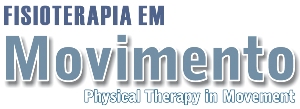Abstract
Objective
: The aim of this study was to perform a systematic review of the major skin diseases affecting obese individuals and their influence on physical activity.
Methods
: Relevant articles were identified by systematically searching PubMed from 2000 to 2014, using the descriptors "skin diseases" and "obesity", "skin disease" and "obesity", "skin diseases" and "physical activity", "skin disease" and "physical activity". The PEDro Scale (in Brazilian Portuguese) was used to rate the methodological quality of the studies.
Results
: A total of 320 articles were examined in the first phase. In the end, 11 articles met the proposed criteria and were included for analysis in the systematic review. We investigated cutaneous manifestations of diseases and classified them according to their effects under 5 categories: metabolic (n = 10), aesthetic (n = 7), inflammatory (n = 6), mechanical (n = 5) and infectious (n = 3). The most frequent dermatoses among obese were acanthosis nigricans, acrochordon (skin tags), stretch marks, plantar keratodermia, intertrigo, bacterial and fungal infections. Acanthosis nigricans was found to be the most important metabolic implication of obesity.
Conclusion
: Although neglected, skin lesions are common in obesity and have implications for physical activity because they cause pain, discomfort, friction, infection, inflammation, embarrassment, limitation or difficulty of movement. Strategies to promote skin health may result in a better integration of physical activity into routine therapy and improve the quality of life of obese individuals.
Keywords:
Obesity; Skin diseases; Quality of life; Physical activity; Health

 Thumbnail
Thumbnail




